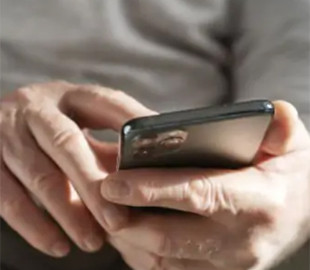
According to the Ukrainian operators, the requirement of the National Center for 10 hours of communication without light cannot be fulfilled in such a short time.< /p>
Ukrainian mobile operators will not be able to fulfill the requirement of the National Center for Operational and Technical Management of Telecommunications Networks (NCU) to ensure 10 hours of autonomous operation of base stations in the event of a power outage: from October 1, at least 60% of base stations must work according to this standard, and by the end January 2025 — 100% About what will happen to the connection in Ukraine in winter, is discussed in the material of “Economic Truth”.As noted in the publication, after the first Russian attacks on the Ukrainian energy system in 2022, operators began the process of modernizing the mobile communications network, investing billions of hryvnias in its autonomy. During the modernization, they focused on the order of the National Center of Ukraine dated February 20, 2024 — at least 4 hours of equipment operation without light. By the end of November, this requirement had to be fulfilled in half of BS, and by the end of June 2025 — by 75%.
However, in July, the NSU issued a requirement to increase the battery life of the equipment. According to this requirement, from October 1, 60% of 36,000 base stations must work without light for at least 10 hours.
Later, the mobile operators “Kyivstar”, Vodafone and lifecell announced in a joint statement that it is impossible to fulfill the new requirement. The main reason is lack of time. According to the technical director of “Kyivstar” Volodymyr Lutchenko, no one in the world could complete such a volume of work in such a short time.
“Everyone who understands how telecommunications work, realizes that 10 hours — an absurd demand”, — one of the operators said in a comment to the publication.
200% Deposit Bonus up to €3,000 180% First Deposit Bonus up to $20,000Why operators do not have time to comply with the requirements of the NCU
According to the publication's calculations, Ukrainian operators should install more than 100,000 storage batteries in the coming months. According to one of the operators, the conversion process is being delayed, in particular, because the contractors are “afraid to go to the facilities through TCC employees”.
Operators also need to modernize the climate cabinets that ensure the maintenance of a constant temperature necessary for charging the batteries. At the same time, part of the equipment is located on communal property or owned by the State Property Fund. It is impossible to quickly change the lease agreement with these institutions.
In addition, companies feel a lack of personnel for re-equipment and constant maintenance of base stations. According to a Vodafone representative, if generators are installed at each of the company's 2,500 facilities in the Kyiv region, then 2,000 specialists will need to be hired for their maintenance.
What will happen to communications in Ukraine in winter
According to experts, despite active preparation for blackouts, these measures will be effective only under the condition of stable scheduled shutdowns. As Volodymyr Lutchenko points out, batteries can be installed to ensure even 20 hours of operation of the base stations, but without sufficient time for their recharging, this will not make sense.
Part of the base stations is already connected to generators, which will allow save network operation without light. However, the quality of the connection will be worse. Stopping the work of even 20% of base stations significantly affects the quality of services.
The head of the lifecell mobile network operation department, Kostiantyn Sotnikov, noted that in July, consumers were left without power for 4 to 6 hours a day on average. Currently, most base stations will be able to work without electricity for 4-6 hours. However, if there is no light for more than 6 hours, the operators will be able to provide only basic services, since the batteries will not have time to fully charge. Not everyone will be able to call and not on the first try.

